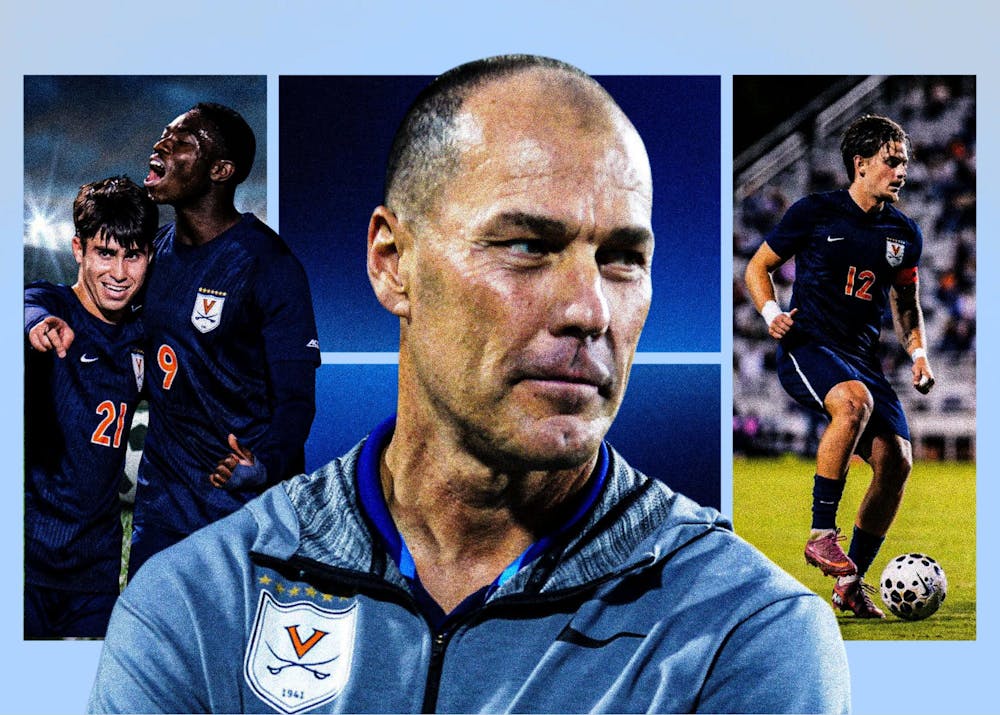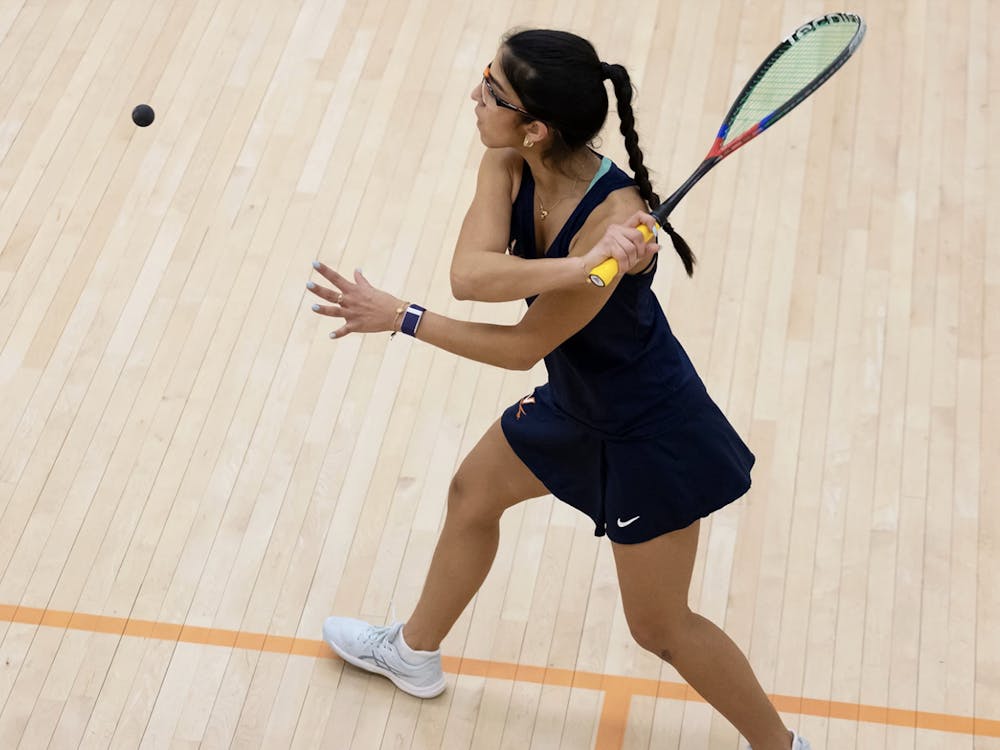Coach George Gelnovatch has a minor fixation with scheduling. The way he sees it, come the postseason there is a goal, to get the highest seed possible, and there is one surefire scheduling strategy to reach it.
“Philosophy?” Gelnovatch said preseason. “Play a tough schedule.”
The theory, by now, has become science.
Further proof of it came Friday, exactly one month from the unveiling of the NCAA Tournament bracket, when the NCAA Men’s Soccer Committee ranked Virginia at No. 3. The team’s strength of schedule, presently ranked fifth in the country, once again is boosting it to a high postseason seeding.
Virginia may be ranked No. 11 in the national poll and No. 6 in the RPI. But the selection committee rankings — a compilation of what the bracket’s top 16 would look like if the season ended now — are the ones that will ultimately matter.
“The top four teams have been exceptionally competitive in their schedules up to this point in their season,” Brian Mackin, the chair of the committee, said. “Developing a top-16 ranking was extremely difficult as the next group of teams were very competitive and have strong resumes.”
For yet another season, Gelnovatch can adopt his typical arms-crossed pose and chuckle. He pieced together just about the hardest schedule he could find, because he knows where it will land Virginia on a bracket.
“If you can get 10 wins, 11 wins in that schedule, that generally translates into a top-10 seed,” Gelnovatch said preseason, when asked about his scheduling philosophy. “So that’s kind of been our formula.”
Virginia’s final strength of schedule has ranked top in the country two of the last three years. Since 2013, when strength of schedule rankings first showed up on the NCAA’s statistics website, Virginia has three times ranked first and six times ranked in the top five. Not since 2016 has it ranked outside the top 10, excluding the patchwork season of 2020.
That high strength of schedule has unerringly delivered high seeds. Virginia has made it to eight tournaments since 2015 and has received a top 12 seed in all eight.
Among the seven selection criteria listed by the NCAA, strength of schedule is one. RPI, the committee’s favored metric and one that takes into account strength of schedule, is another. Virginia schedules hard because it knows it helps — and it knows it can handle it. That dauntless mentality has become a point of pride.
“Over the past three seasons, we’ve consistently played one of the toughest schedules in college soccer — and this season will be no different,” Gelnovatch said in the team’s schedule release.
Not all of it is by choice. Virginia competes in the ACC, perennially the spikiest conference in the country, in which just navigating the league slate is like walking through a street of falling bricks. Every team in the league has a lofty strength of schedule.
Virginia’s separation comes in its non-conference lineup. Scheduling those games begins with a mass message. The coaches put out a document, a list of available dates. From there schools reach out to each other to set up games.
Virginia is always looking for home games. It rarely travels for non-conference games — this season, for example, seven of its eight non-conference games are at home. It was the same last season, and since 2014, Virginia in any given season has not played more than one true road game. Even then, those road games are never further than in-state jaunts to James Madison and George Mason or trips to Maryland.
Gelnovatch has never seen the point, he has said, of taxing his team unnecessarily with travel. Teams can come to him, if they want. But if they do, he knows they will be good.
“You're not going to come in here as a coach unless you know you have a veteran team, or you've had a good year the year before,” Gelnovatch said.
Virginia, of course, loses some of those non-conference games. Most teams that stand up for the fight have veteran rosters and so may have an advantage early in the season. Colgate beat the Cavaliers last year. George Mason thrashed them this year.
But the tradeoff, as the results have shown, is well worth it. And scheduling these opponents reflects the coaches’ confidence in their team.
“I know that the coaches believe in us, and I know we are good enough as a group to meet that schedule as well,” graduate defender Sebastian Pop said. “We know we have such a high level in our team — every player, even the ones that are not starting.”
Speaking preseason, Gelnovatch compared this year’s schedule to those of the last few years.
“This might be our toughest schedule,” he said with conviction.
That has failed to pan out, as Denver and Dayton, ranked No. 4 and No. 12 preseason, have tumbled out of the rankings, although unranked UNC Greensboro has risen to No. 18.
But the seeding is only the difference between the hardest schedule in the nation and the fifth-hardest schedule. And it has not stopped the high NCAA Tournament ranking from coming together.
Virginia hopes to, unlike in past years, make something of it. Recently, like going through a series of doors, the scheduling philosophy has led to a high seed, the high seed has provided a first-round bye and home-field advantage, and then the key has jammed and the team has lost.
“We’ve reached the Round of 16 in back-to-back seasons,” Gelnovatch said, “but the next step is a true postseason breakthrough — and I believe this team is ready to deliver it.”







